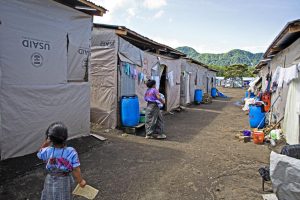The withdrawal of U.S. foreign aid since the sudden freeze in January 2025 has underscored the need for a paradigm shift in global health, particularly in Africa, where communities have long been depicted as passive recipients of foreign assistance. Many people in Africa have played a crucial role in advancing HIV treatment, from early studies on antiretroviral therapy to recent innovations in long-acting injectable drugs for prevention. Despite their contributions, they are often the last to benefit from these advancements.
Boghuma Kabisen Titanji, a physician trained in Cameroon, calls this a wake-up call, highlighting the fragility of health systems built on external aid and the urgency for African leaders to prioritize healthcare investment, local innovation, and infrastructure development.
Similarly, in Latin America and the Caribbean (LAC), the moment presents an opportunity to reevaluate the region’s reliance on the U.S.-based organizations like the Pan American Health Organization (PAHO). Irene Torres, a Member of the International Advisory Board of The Lancet Global Health, argues decentering PAHO from Washington—both financially and politically—could empower it to focus on regional health priorities and strengthen governance in the Americas. With certain LAC nations already demonstrating better health outcomes than the U.S. in some areas, the knowledge and resources to drive sustainable healthcare improvements may already exist within the region. Moving towards more self-sufficient and collaborative health governance models could pave the way for a more equitable future.
Ntobeko Ntusi, researcher from South Africa, highlights how U.S. aid, like that of other Global North nations, has perpetuated white saviorism, dependence, and paternalism rather than fostering true partnerships. In a more just world, no single country would hold such outsized influence over the health of so many beyond its borders. However, this disruption presents a pivotal opportunity to reimagine global health—one that shifts away from reliance on the Global North and addresses the deeply embedded financial, epistemic, and power imbalances in global health systems.
To build a more equitable future, governments in the Global South must prioritize investment in their healthcare systems and scientific research. Strengthening South-South collaboration will allow scientists to share knowledge and develop solutions suited to their own contexts. Funding decisions should align with local health needs rather than external donor priorities, while universities must emphasize real-world impact over conventional research incentives. Capacity building, diversity, and inclusion must be at the forefront to ensure global health leadership reflects the realities of those most affected. Advocacy, activism, and moral courage will be essential in shifting the paradigm, enabling leaders to act with integrity even when facing pressure from powerful nations.
Ultimately, the Global South must take control of its own health agenda, defining, funding, and implementing policies based on its priorities rather than reacting to the shifting politics of the Global North. This moment calls for bold leadership and a commitment to structural change—one that fosters true sovereignty over health governance. By breaking away from historical dependencies and reclaiming agency, the Global South can build resilient, self-sustaining health systems that serve their people on their own terms.
References
Ntusi, N. (2025). US aid cuts are an opportunity to reimagine global health. nature medicine. Accessed February 25, 2025 from https://www.nature.com/articles/d41591-025-00009-9
Titanji, B. K. (2025). The end of dependency? PEPFAR’s crisis and Africa’s health reckoning. BK.’s Substack. Accessed February 25, 2025 from https://bktitanji.substack.com/p/the-end-of-dependency-pepfars-crisis
Torres, I. & López-Cevallos, D. (2025). A vision for PAHO/WHO from and for Latin America. Latinoamérica21. Accessed February 25, 2025 from https://latinoamerica21.com/en/a-vision-for-paho-who-from-and-for-latin-america/
Image: Tina Manley / Alamy
